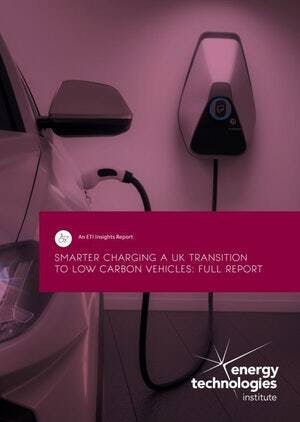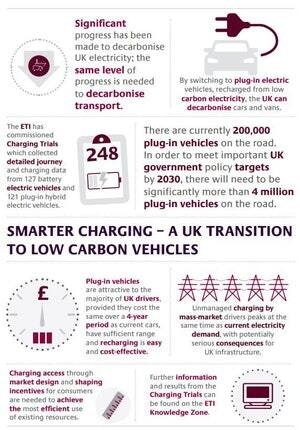Smarter Charging A UK Transition to Low Carbon Vehicles: Full Report

Andrew Haslett
Chief Engineer

This insight report reveals that managed or ‘smart’ charging could support the widespread integration of low carbon cars and vans into the energy system, to meet the UK’s 2050 climate change targets.
This report is intended to be an update to the first ETI nuclear insight report released in October 2015, entitled Nuclear – the role for nuclear within a low carbon energy system, and for completeness also summarises developments in the UK nuclear context since 2015.
Though significant progress has been made to decarbonise the country’s electricity, the same level of progress is needed to decarbonise transport. Meeting important UK government policy targets by 2030, will require significantly more than 4 million plug-in vehicles to be on the road. The ‘Smarter Charging: A UK Transition to Low Carbon Vehicles’ insight report examines some of the issues facing the mass market transition from fossil fuel to low carbon miles.
This report was prompted by the completion of the ETI’s Consumers, Vehicles and Energy Integration (CVEI) project. As part of the two year project, Charging Trials were commissioned to collect detailed journey and charging data from 127 battery electric vehicles (BEVs) and 121 plug-in hybrid electric vehicles (PHEVs). The research shows that plug-in vehicles are attractive to the majority of UK drivers, provided they cost the same over a 4-year period as current cars, have sufficient range and recharging is easy and cost-effective.

Andrew Haslett
Chief Engineer
Andrew Haslett joined ETI as Strategy Director in April 2008 and was appointed Chief Engineer in January 2014. He is a Fellow of the Royal Academy of Engineering, the Institution of Chemical Engineers and the Royal Society for the encouragement of Arts, Manufactures and Commerce.